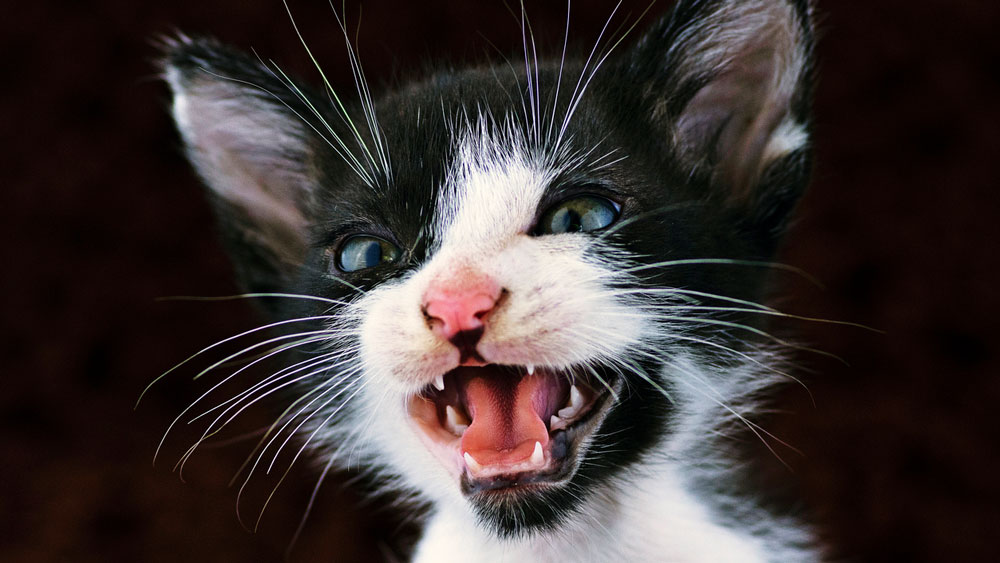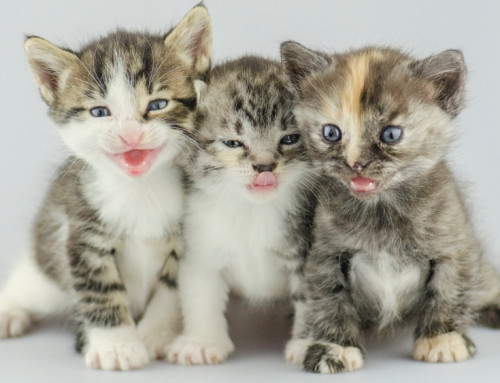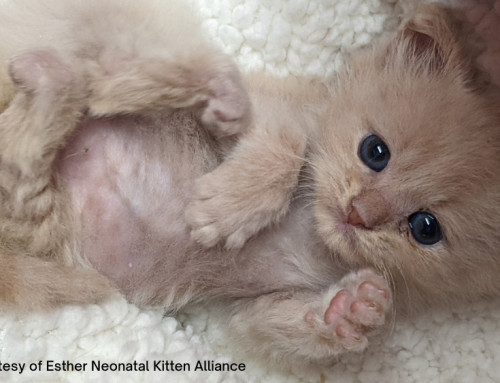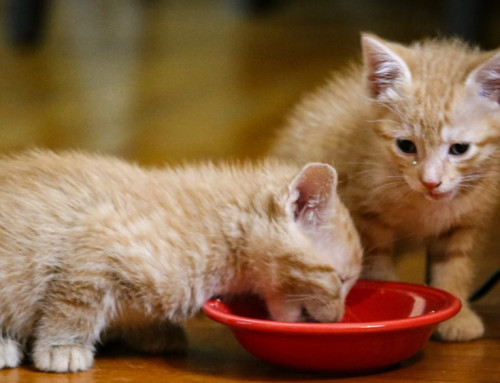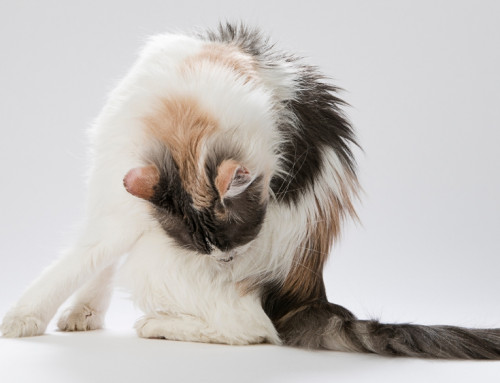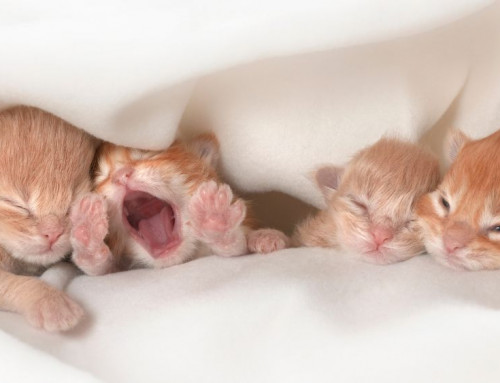Share this resource or email it to a friend!
Do you know how many teeth kittens have from week to week? Is there anything we, as fosters and caregivers, can do to help kittens have good dental health later in life? Keep reading for answers to these questions and more.
In young kittens, the number of deciduous (baby) teeth present, and the degree to which they’ve erupted or grown in, can help us accurately determine a kitten’s age. When kittens are born, they don’t have any teeth, but within only two to three weeks sharp little teeth begin to erupt!
First to come through a kitten’s gums are the incisors, the tiny teeth across the front of the mouth: six on top, six on the bottom. Then, at about three weeks of age, come the canine teeth, the long, pointed teeth at the front ‘corners’ of the mouth: two on top, two on the bottom. At about five to six weeks of age, come the premolars, the chewing teeth along the sides: six on top (three on each side), four on the bottom (two on each side). It may take a week or so for these premolars to fully grow in after erupting through the gums. Have you been adding them up? By about seven to eight weeks of age, kittens have 26 teeth.
Then, at about 12 weeks of age, the adult, or permanent teeth, start coming in. Those teeth will erupt in the same order as the kitten’s deciduous teeth and replace them. You may find deciduous teeth that have fallen out during this time, but often they are simply swallowed when the kitten eats and passed in the poop.
In addition to replacing the 26 deciduous teeth, kittens will also grow four additional adult teeth. These are molars located behind the premolars: two on top (one on each side), two on the bottom (one on each side). This brings the total count to 30 teeth for the adult cat (or kitten 6-8 month of age and older).
As fosters and caregivers, we want to start kittens off right and, although their deciduous teeth will fall out, it’s important to accustom them to having their teeth brushed. Getting kittens used to brushing at an early age will help them accept regular teeth brushing as an adult. Regular brushing will hopefully result in fewer dental and oral health problems, along with fewer trips to the veterinarian for dental cleanings or extractions.
Talk with your foster coordinator or veterinarian about the different dental products that are available for cats. ONLY use feline-safe products; NEVER use human toothpaste because some ingredients can be dangerous.
As with any animals, always be careful when handling them, especially around their mouths. Kittens have needle-sharp teeth, which can accidentally scratch you or puncture your skin. To keep everyone safe when brushing feline teeth, be sure to use the right products for the job, learn the correct procedures and take it gently and slowly.

